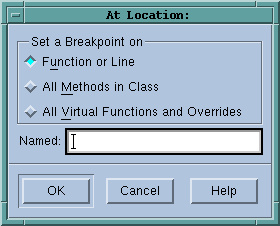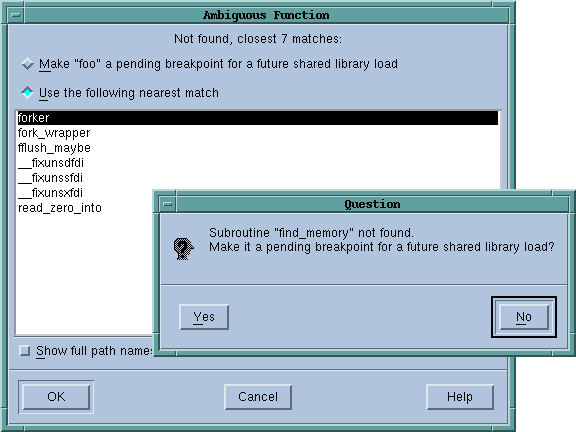|
|
The Action Point > At Location command now has three choices:
|
|
|
Function or Line: lets you set a line number or a function name. This choice is what occurred in previous TotalView releases.
|
|
|
All Methods in Class: lets you set a breakpoint on all methods in a class. This can set more than one breakpoint.
|
|
|
All Virtual Functions and Overrides: lets you set breakpoints on virtual functions and their overrides. This too can set more than one breakpoint.
|
|
|
You can now tell TotalView that a breakpoint will occur in a library that will be loaded later and that TotalView should retain knowledge of this breakpoint. This allows it to be set when the library is read. Previously, TotalView had to create and set breakpoints at the same time. This meant that when you enter a name into the At Location dialog box and the name is not yet known, TotalView, displays either an Ambiguous Function or a Question dialog box. At this time, you can set the breakpoint’s status to pending.
|
|
|
When you create a barrier breakpoint or change a breakpoint to a barrier point, the same new features are available.
|
|
|
The CLI dbreak, dbarrier, and dlist commands have been extended to use these features. The argument to these commands can now be a breakpoint expression. Understanding this concept reveals some of the subtleties involved using these new features. These concepts are explained with the dbreak pages of the TotalView Reference Guide.
|

